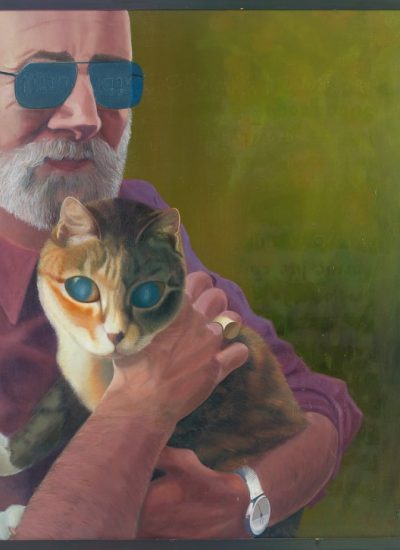

I write for anybody interested in the phenomenon of mood disorder—in the first instance for depressives themselves.
Roger Lass
Roger Lass is a historical linguist and honorary professorial fellow at the University of Edinburgh.


Roger Lass (born January 1, 1937) is a historical linguist, currently an honorary professorial fellow at the University of Edinburgh.
He earned his PhD from Yale University in 1965 in Medieval English Language and Literature, and subsequently worked at Indiana University (1964–1971), the University of Edinburgh (1972–1982), and the University of Cape Town (1983–2002).
He has done extensive work in the history of English, the motivation of sound change, and the history of linguistics. He was made an honorary professorial fellow at Edinburgh in 2014.
He was the editor of the third volume of The Cambridge History of the English Language.
Aside from being a (partly remitted) manic depressive, he is a retired freelance academic, formerly Distinguished Professor of Linguistics at the University of Cape Town and currently an Honorary Research Fellow of both that university and the University of Edinburgh. Though he was trained as a philologist and linguist, his interests are as much in psychology, philosophy of science and biological sciences. In recent years much of his research, teaching and writing has been concerned with evolutionary theory, neuroscience, the biology of language and the philosophy of mind and consciousness.
A detailed study of Old English, taking as its point of departure the ‘standard theory’ of generative phonology as developed by Chomsky and Halle.
Dr Lass examines certain crucial issues in phonological and general linguistic theory through detailed studies of English phonetics, dialectology and language-history.
Roger Lass is concerned about the nature of argumentation within linguistics and the status of its data and theoretical constructs.
Roger Lass sees phonology as essentially a problem-centred discipline. Since in his view none of the supposedly comprehensive answers proposed to the questions raised above is really comprehensive or acceptable in all its detail, he concentrates rather on introducing the student to the perennial concerns in the study of sound structure.
An authoritative and comprehensive study of English as a whole, including history and dialectology, both regional and social.
Old English is a companion to Old English studies and to historical studies of early English in general.
Roger Lass offers a critical survey of the foundations of the art of historical linguistics. Language change happens in the spatio-temporal world. Historical linguistics is the craft linguists exercise upon its results, in order to tell coherent stories about it.
Roger Lass is a historical linguist and honorary professorial fellow at the University of Edinburgh.